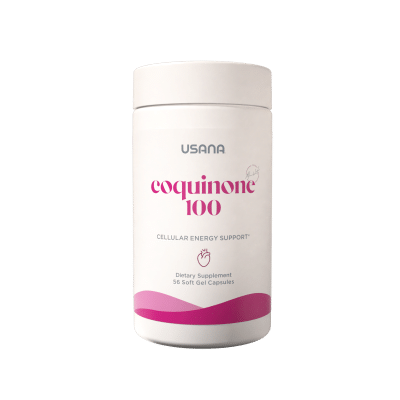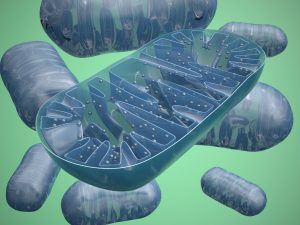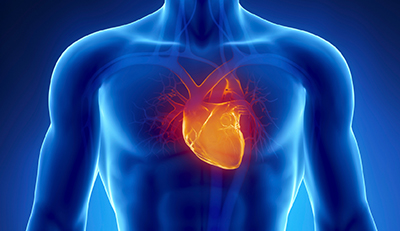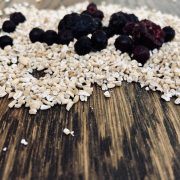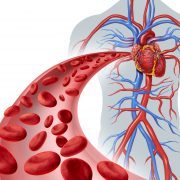CoQuinone® 30 | CoQuinone 100
USANA® CoQuinone® 30 and CoQuinone 100 Fuel Your Cells to Power Your Life*
USANA® CoQuinone® 30
CoQuinone 100
Give your cellular power plants what they need to keep you energized, plus get potent antioxidant protection with coenzyme Q10 and alpha-lipoic acid.*
Your heart beats. Your brain sends signals. Your digestive system processes food. The energy you need to power every aspect of your life starts in your cells. And your cells need the right materials on hand to create that energy. Unfortunately, with age, your body starts to slow down the production of your cells’ resources. Give your cells a boost to help keep them–and you—humming along at full speed with USANA® CoQuinone® 30 and CoQuinone 100.*
Maintaining good stores of cellular energy is important for virtually every part of your body. This unique supplement powers your life by combining a well-absorbed form of coenzyme Q10 (CoQ10) with alpha-lipoic acid for maximum benefits. Plus, both nutrients provide potent antioxidant activity to help protect your cells from damage, so they can function at optimum power.*
CoQuinone can help provide excellent support for:
- Cellular health and function*
- The health of many organs and tissues, including the heart*
- Muscle function*
One small study has shown that supplementing 300 mg of CoQ10 may help alleviate some symptoms of fatigue during hard work. But generally, a daily dose of USANA CoQuinone isn’t going to give you a big (temporary) boost in energy like a shot of caffeine. But it’s a great way to help your cells keep making the real energy they need to fuel a healthy body every day.*
CoQuinone contains CoQ10 in the form of a solubilized ubiquinone (meaning it’s formulated to dissolve). It’s produced microbiologically in fermentation, then purified. USANA’s unique formulation has excellent absorption, because it provides these important antioxidants in a lipid mixture of natural emulsifiers and medium-chain triglycerides.
Take one to two capsules of CoQuinone 30 per day. Or, get a full daily dose in only one gelcap with CoQuinone 100.
Boost CoQ10 to Keep Your Cells Acting Youthful with CoQuinone
Coenzyme Q10 (CoQ10) is found throughout your body. You might say it’s ubiquitous, and you’d be right. That’s why CoQ10 is also known as “ubiquinone.”
CoQ10 is naturally made by the body and is concentrated in cellular membranes. In particular, the membranes of mitochondria. These organelles—specialized cell structures—are the place in each cell where energy is made. They’re your cellular power plants.
In order to function properly, every cell in your body is powered by energy. The food you eat is the main source of this fuel. Energy is generated when the chemical bonds of food molecules are broken apart. This occurs in a complex cycle that ultimately results in the generation of new molecules that can be used and stored in the mitochondria: adenosine triphosphate (ATP). The process requires many steps and many nutrients. CoQ10 is a key part of the process.
CoQ10 works like a relay race team member on the electron transport chain—a series of reactions that create energy. Because it’s fat soluble, it can move freely across the lipid (fat) bilayer of your cellular membranes. So, in simple terms, CoQ10 helps support ATP production in three steps:
- It takes electrons from one group of proteins
- It quickly transports the electrons across the lipid layer
- It delivers those electrons to another group of proteins
As each of these transfers happen, the reactions release energy that can be stored and used as ATP.
Your body naturally makes CoQ10 to support the energy generation cycle. So why do you need to add it in a supplement?
When you’re young, your body stores or produces ample amounts of CoQ10. The amount peaks (in most organs) around age 20. Then, with age, it gradually declines. By the time you hit your eighties, your cells could have less than half of what they did in your twenties. Plus, CoQ10 may be depleted by several other factors, including overall nutritional status and inadequate levels of the B vitamins, vitamin C, and selenium.
You can help your cells act with youthful efficiency. Give them what they need to create energy with CoQuinone. Made with a highly absorbable form of CoQ10, CoQuinone can help replenish your cells’ stores of CoQ10. This helps ensure that your hardworking cells will have plenty of energy, so they can stay healthy—which gives you the energy to stay healthy.*
A Potent Duo to Protect Peak Cellular Function
The combination of CoQ10 with alpha-lipoic acid makes CoQuinone even more effective than CoQ10 alone. Alpha-lipoic acid directly helps enzymes within the mitochondria convert glucose into energy. So, together, these nutrients provide even more support for healthy mitochondrial function and energy production.*
Both nutrients are available in most peoples’ diets, but they may not be at levels sufficient to make a real difference in revving up cellular energy. So a supplement is an easy way to help increase levels.
And aiding energy production isn’t the only way alpha-lipoic acid and CoQ10 support mitochondrial function. Together, they also offer powerful antioxidant defense—complementing the activity of the mitochondrial cleanup process—to maintain peak cellular integrity and efficiency.*
Damaging free radicals are a byproduct of the electron transfers that happen during energy production. CoQ10 and alpha-lipoic acid can neutralize those free radicals to protect the mitochondrial structures and functions from damage. This activity is key for maintaining long-term well-being.
Protection against oxidative damage has been linked to support for many aspects of healthy aging, including maintaining cognitive function and maintaining healthy skin.*
CoQ10 rivals the antioxidant action of vitamins E and C. It also helps regenerate and recycle vitamin E. Alpha-lipoic acid acts like a super antioxidant, fighting off free radicals inside the cell and in the outer cell membrane. It aids the production of one of your cells’ natural antioxidants—glutathione. And it also helps your cells recycle CoQ10. So together, these ingredients provide potent defense against oxidative stress that could slow down your cellular energy engines.*
Energize Your Heart, Brain, and Overall Health
Every cell needs ATP, making CoQuinone important for maintaining your overall health. Some cells are more energy-hungry than others. You’ll find the most CoQ10 in organs with the highest energy needs:
- Kidneys
- Liver
- Pancreas
- Spleen
- Lungs
- Adrenal glands
- Brain
- Muscles
This includes your most important muscle: your heart. With every beat, your heart muscle uses energy to contract and relax as it pumps blood through your body. CoQuinone can help provide the nutrients needed to help keep this process strong.*
Several human clinical trials have shown CoQ10’s effectiveness in helping to maintain good cardiovascular function. And the benefits go beyond its well-documented benefits for energizing the heart. Research has also shown CoQ10 can help maintain healthy cholesterol levels, as long as they’re healthy to begin with. It does this by protecting low-density lipoprotein cholesterol (LDL—the bad kind) from oxidation, so it is less likely to become damaging to surrounding tissues.*
Key Ingredients
- Coenzyme Q10
- Alpha-Lipoic Acid
See full list of ingredients
Usage
Take one (1) or two (2) capsules daily, preferably with food.
Keep out of reach of children. Consult your physician if you are pregnant, nursing, taking
a prescription drug, or have a medical condition.
Ideal For
- Healthy adults
Frequently Asked Questions About CoQuinone
Is there a difference between ubiquinone and ubiquinol?
Ubiquinone is a form of CoQ10 that is converted into ubiquinol in the body. A small USANA in-house study found that solubilized formulations of either ubiquinone or ubiquinol are equally beneficial.
References
Crane FL. Biochemical functions of coenzyme Q10. 2001. J Am Coll Nutr 20(6):591-8.
Cuomo J, Rabovsky A. 2001. Clinical Research Bulletin USANA Health Sciences.
Sarter B. Coenzyme Q10 and cardiovascular disease: a review. 2002. J Cardiovasc Nurs 16(4):9-20.
Saini R. 2011. Coenzyme Q10: The essential nutrient. J Pharm Bioallied Sci 3(3): 466-467.
The mitochondrion: electron transport chain. Encyclopedia Britannica [Internet] [accessed 7 May 2018] Available at https://www.britannica.com/science/cell-biology/Regulation-of-RNA-after-synthesis#ref313780
Pandel R, Poljsak B, Godic A, Dahmane R. 2013. Skin Photoaging and the Role of Antioxidants in Its Prevention. ISRN Dermatology Sep 12 [Internet] [accessed 29 May 2018] Available at https://www.ncbi.nlm.nih.gov/pubmed/24159392
You Might Also Enjoy
Coenzyme Q10: How it Works for Your Health
Coenzyme Q10 isn’t quite a vitamin, but it’s still important for your health. Discover all the CoQ10 benefits—from energy production to antioxidant protection.
5 Delicious Heart Healthy Foods You’ll Love
Learn about five heart healthy foods and why they’re so good for the heart. Get tips on crafting a heart-healthy diet.
Red Blood Cell Super-Highway: Navigating the Cardiovascular System
Take a deeper look at the anatomy of the cardiovascular system, what it does, and how to promote cardiovascular health.
*These statements have not been evaluated by the Food & Drug Administration. This product is not intended to diagnose, treat, cure, or prevent any disease.


